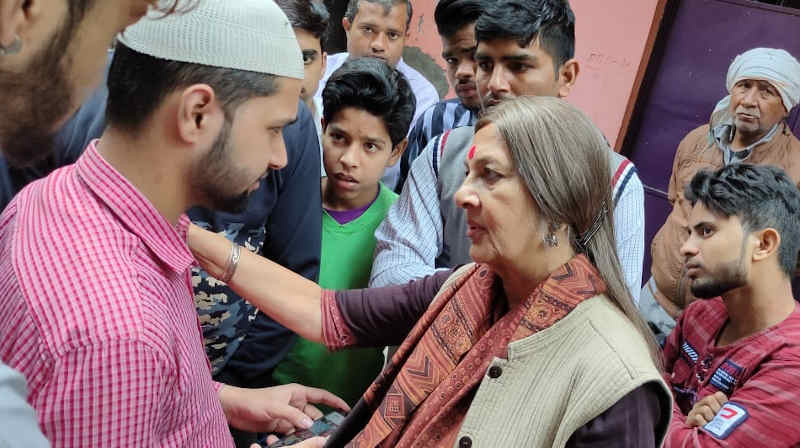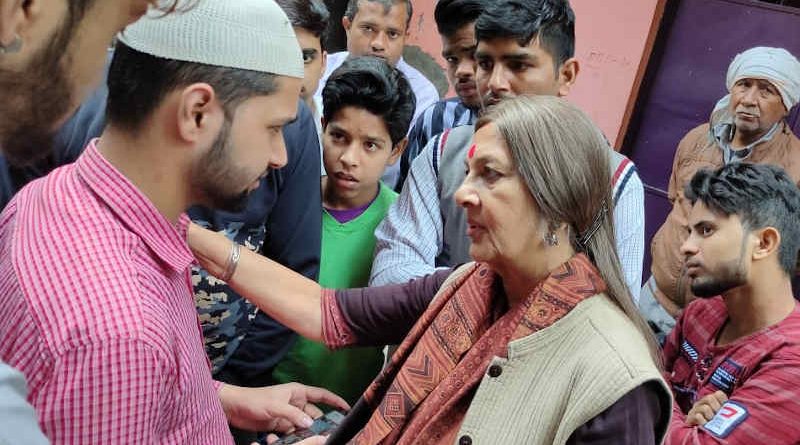India Faces Risk of Mass Violence Under Hindu Nationalist Regime: U.S. Report

India Faces Risk of Mass Violence Under Hindu Nationalist Regime: U.S. Report
The U.S. ignores the events of hate, human rights violations, and growing religious animosity in India, because its main objective is to earn money from the Indian markets.
How did communal violence start India?
When did communal violence start in India?
What is Hindu nationalism?
Mass Violence in India
Mass Killing in India
By RMN News Service
A US-based research organization has predicted that India is among the top countries which are facing risk of mass killing and violence. The Early Warning Project (EWP), which identifies countries at risk of mass violence, has ranked India at the 8th position among the countries that are under the highest risk for mass killing in 2022 and 2023.
The EWP findings about the chances of widespread violence in India are similar to other global reports that have expressed apprehensions over growing incidents of hate and hostility in the country.
For example, the global Genocide Watch has put India under “Genocide alert” with Muslims and landowners among the affected groups. It says Hindu extremists and naxalite maoists are harassing these groups.
Genocide Watch aims to predict, prevent, stop, and punish genocide and other forms of mass murder. Its purpose is to build an international movement to prevent and stop genocide.
The International Religious Freedom Report released in June 2022 by the U.S. Department of State has raised serious concerns over increasing attacks on Muslims and other minority communities in India.
The report states that attacks on members of religious minority communities, including killings, assaults, and intimidation, occurred throughout the year. These included incidents of “cow vigilantism” against non-Hindus based on allegations of cow slaughter or trade in beef.
In June 2022, Rep. Ilhan Omar (D-MN) introduced a resolution to condemn human rights violations and violations of international religious freedom in India, including those targeting Muslims, Christians, Sikhs, Dalits, Adivasis, and other religious and cultural minorities.
The resolution calls on the U.S. Secretary of State to designate India as a Country of Particular Concern under the International Religious Freedom Act, which has been recommended by the independent, bipartisan U.S. Commission on International Religious Freedom (USCIRF) for the past three years.
However, the U.S. ignores the events of hate, human rights violations, and growing religious animosity in India, because its main objective is to earn money from the Indian markets.
Meanwhile, in its article on December 3, 2022, The Wire news service has produced a detailed analysis of the EWP report.
The EWP statistical model estimates that there is a 7.4%, or approximately 1 in 14, chance of a new mass killing beginning in India in 2022 or 2023 while India ranks 8th highest-risk among 162 countries.
The Early Warning Project—a joint initiative of the Simon-Skjodt Center for the Prevention of Genocide at the United States Holocaust Memorial Museum and the Dickey Center for International Understanding at Dartmouth College—has produced a global risk assessment every year since 2014.
The EWP research reveals that India has ranked in the top-15 highest-risk countries since our 2017–18 assessment, including its highest rank of second last year. India’s shift in rank from second to eighth can be most attributed to an improvement in the freedom of movement for men, according to the data from the V-Dem Institute.
Its interactive Change a Country’s Risk Factors tool indicates that if this variable remained the same as last year, India would be ranked first in this year’s assessment with an 11 percent increase in risk.
In 2022, according to the EWP report, the Hindu nationalist-led government’s systematic discrimination against the country’s Muslim minority has continued to intensify amid mounting reports of violence—met with impunity—and efforts to restrict Muslim rights.
The report adds that Hindu nationalist leaders have continued to propagate hate speech, including religious leaders’ calls for mass killings of Muslims in December 2021.
Several states saw large-scale and violent incidents targeting Muslims in recent months, which involved Hindu* nationalist processions engaging in derogatory anti-Muslim chants and the desecration of mosques.
In response to these violent provocations, local authorities bulldozed Muslim-owned property across several states, which rights groups cited as an apparent attempt at collective punishment.
Reports indicate continued abuses in the disputed Muslim-majority territory of Jammu and Kashmir, including increased targeting of Hindu civilians by militants and the Indian government’s crackdown on journalists and human rights defenders.
Other minorities and persecuted groups, including Christians and Dalits, continue to face violence and discrimination. According to the EWP model, the factors accounting most for India’s high-risk estimate are its large population, its history of mass killing, its geographic region (South and Central Asia), and the presence of battle-related deaths (armed conflict between the Government of India, the Communist Party of India [Maoist], and Kashmir insurgents).
*Hindus: Hoodlums who masquerade as Hindu nationalists to attack Christians, Muslims, and Sikhs with the complicity of local police. These pseudo Hindu thugs enjoy a tacit support from PM Modi and his Bharatiya Janata Party (BJP) governments in different states.
Only a miniscule fraction of real Hindus follow Modi’s dirty version of Hinduism which is being promoted under the Hindutva brand of religious fundamentalism.





